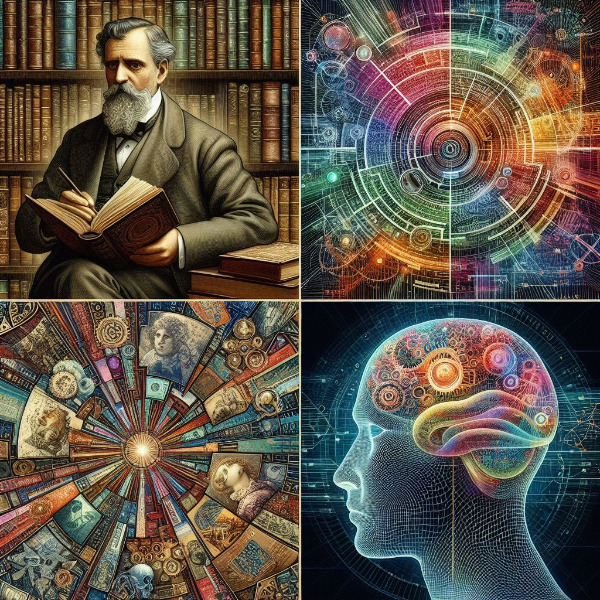Digital Humanities - The Future

To finish this week of posts about digital humanities, I thought I should look to the future of DH. I have no more powers of prognostication than other people in education, and predicting trends that involve technology is particularly difficult -and often very inaccurate.
The future of digital humanities is likely to be shaped by at least three things: ongoing technological advancements, changes in scholarly practices, and evolving research questions. As challenging as it is to predict specific developments, there are some trends and potential directions that may characterize the future of the field.
Integration of AI and Machine Learning: As artificial intelligence (AI) and machine learning technologies continue to advance, we can expect to see increased integration of these tools into digital humanities research. AI algorithms could be used for tasks such as text analysis, image recognition, and data mining, enabling scholars to uncover new insights and patterns in large-scale humanities data.
Virtual and augmented reality technologies have the potential to revolutionize how we engage with cultural heritage sites, historical artifacts, and literary works. Future digital humanities projects may leverage these technologies to create immersive experiences that allow users to explore historical environments, interact with digital reconstructions of ancient texts, or experience literary narratives in new ways.
Digital humanities research has become increasingly reliant on data-driven methodologies and digital technologies, and like scholars in other fields, DH scholars will need to grapple with ethical and social implications. This includes issues related to data privacy, algorithmic bias, and the democratization of access to digital cultural heritage.
The DH community is already more global and is likely to become more diverse and globally interconnected, with scholars from around the world collaborating on projects that reflect a wide range of cultural perspectives and traditions. One would hope that this could lead to new insights into global history, literature, and culture, as well as a greater emphasis on decolonizing digital humanities scholarship.
The interdisciplinary collaboration I wrote about earlier should also put some additional focus on interdisciplinary education and training. Students need to be better equipped with the skills and expertise needed to navigate the complex intersection of technology and the humanities. This could involve partnerships between humanities departments and computer science programs, as well as the development of new curricula that integrate digital methods into traditional humanities disciplines.
Trackbacks
Trackback specific URI for this entryThe author does not allow comments to this entry
Comments
No comments